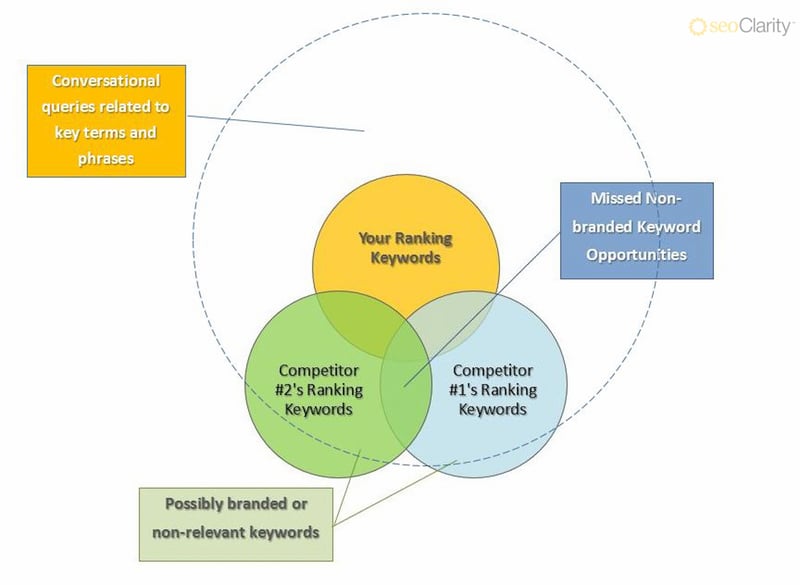The most important aspect of reading the wisdom of the crowd is to move beyond competitive research and onward toward discerning what the actual questions and conversations are around keywords.
As Google and other search engines become more refined, users have been able to ask questions using their natural language rather than the forced "search query speak" we've all been trained to do since the early days of search engines. So, instead of typing the query "running shoes," end-users can speak to Google Now, Siri or Cortana and ask, "What are the best shoes for trail running?"
In fact, Google assumes that there is a question behind the query, and will either automatically serve up an Instant Answer or provide a question refinement option, as shown in the image below:

To that end, the potential question-focused long-tail of search can be immense; much broader than most companies and sites address in their keyword lists. Each question offers an opportunity for not only relevance but also to score that prime real estate in the Instant Answer position. Think about the how the search experience is evolving to not only provide a list of 10 possible answers but to provide the best answer, and let that direct your content marketing efforts.
It's likely that the full keyword landscape for your site or industry looks more like this:

This is the Greater Wisdom of the Crowds, because not only does it include head and body terms that are competitive; it includes actual phrases your potential customers are using to find your products or services. More to the point, with the greater wisdom of the crowds, you can focus your content marketing efforts on topics, not just keyword lists.
Accessing the Wisdom of the Crowds
You're probably asking, "How to I access this information?" Well, there's a scalable approach and a manual approach.
Let's talk about the manual approach first. Here is a seven-step process for researching the wisdom of the crowds:
- Identify the Q&A sites, forums, and industry news sites that are pertinent to your industry.
- Identify the key phrases and keywords that your users would likely submit in a query.
- Run a keyword search on each of the Q&A sites, forums, and industry news sites that you identified in Step 1, and collect the conversational phrases and questions for each term.
- Compile the list of questions and conversational phrases from all of those sites for all of those keywords.
- Prioritize that list based on social shares, up-votes and conversation threads.
- Use the final list to direct your content development strategy.
- Rinse and repeat for each of your products and services.
For enterprise sites, this process can be quite laborious. Imagine doing this for a site with thousands of products, like Home Depot or Costco.
Now, let's talk about the scalable approach. seoClarity has built a feature within the platform as well as within the Chrome plugin called Content Ideas. This feature compiles a list of over 1800 sources, including Quora, Stack Overflow, Yahoo! Answers, etc., and the conversations happening on those sites. Voila! Steps 1 and 3 in the previous approach are taken care of.
seoClarity users can then simply enter their key phrase into the search box in Content Ideas and quickly generate a list of sites and their corresponding articles, posts, and questions. These questions can be added to categorized lists, imported into Rank Clarity, and assigned to a content writer within a matter of seconds.
This feature allows for quick research and scaling across sites of any size.
What content marketers and strategists can accomplish by accessing the greater wisdom of the crowds is build content that directly addresses the needs of the user. By writing about topics rather than filling out a prescriptive approach to keyword inclusion, sites will be able to provide the best possible answer for whatever query the user types in or verbally asks the search engine.
This is the essence of the Relevance portion of the URA SEO Framework.
Conclusion
I've discussed how you can use your competitors' ranking information to edify your keyword lists and then turn those keyword lists into a relevant content strategy that taps into real conversations and queries.
Featured Image photo courtesy: https://flic.kr/p/czbH7o






Comments
Currently, there are no comments. Be the first to post one!